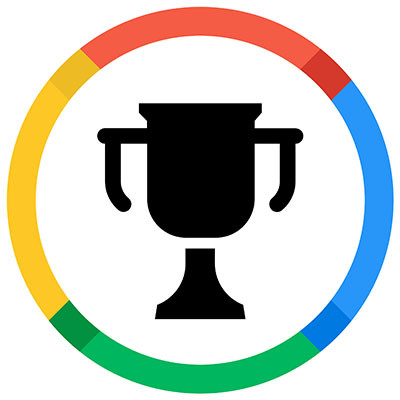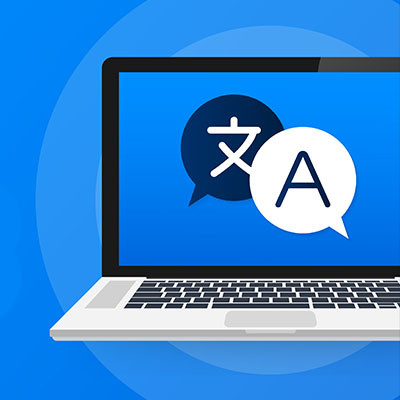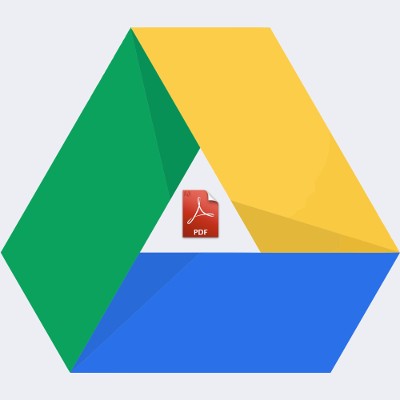k_Street Consulting, LLC Blog
Does your business use Google Workspace for its productivity solution? If so, we’ve got a tip for you—several, in fact, as we explore the various shortcuts available to expedite your productivity. Let’s take a look at some of the lesser-known shortcuts and how your business can use them to power up its efficiency.
Google Lens lets you do some cool things with your mobile device, even if it sometimes feels a bit niche. Google Chrome also has functionality that allows you to use Google Lens to search for anything visible in the browser. For example, it can detect images and text, or still images captured from video, to return results.
Today, we want to highlight how you can use this neat functionality!
If you feel like you have too many browser tabs open at any given time, then you'll be happy to know that you can sometimes save certain browser tabs as a standalone application on your device. This will give them their own icon and make accessing them much easier than constantly navigating to them through your web browser.
Google Search is a cornerstone of the internet, used by billions of people daily to find information quickly and efficiently. But have you ever wondered what happens behind the scenes when you type a query into Google and hit "search"? Let's dive into the intricate process that powers the world's most popular search engine.
If you regularly use Google Docs, you may already be familiar with templates. They can be a quick and efficient way to create certain types of documents that you often use. With several prebuilt into Docs already, you might wonder if you can make your own, and it turns out you can!
Let’s discuss how you can use Google Docs templates and how to make your own. First, we’ll look at what types of elements you might need to implement for your templates, and then we’ll get into the details of how to do it!
In recent years, educational institutions have widely adopted the regular use of laptops in the classroom, and with budgets being a pressing concern for many of these institutions, the cost-sensitive nature of Chromebooks make them an excellent option… at least, that would be the assumption. However, this is not the case in the slightest, as the software that powers these devices regularly reaches its end of life, despite the hardware being perfectly capable of more.
Google Docs has been a worthy competitor to the ubiquitous Microsoft Word since the search engine giant launched the service in 2006. Since then, it’s been used by personal accounts and businesses as a fantastic alternative to the Microsoft Office suite. Google was able to beat Microsoft to the punch with a nearly fully-featured, browser-based document editor that allowed incredibly easy collaboration and sharing capabilities. However, there’s one little hang-up that people often run into when using Google Docs, and we’re going to show you how to overcome it.
Have you ever wanted to put a YouTube video on repeat for an inordinately long amount of time, perhaps looping on a kiosk or on a conference room tv in the background? There are several ways to do this, including a feature built into YouTube itself and third-party websites. Let’s take a look at both options.
Have you ever considered the importance of client-side encryption for your Gmail and your Calendar? If you implement it, you can create meetings and send or receive emails that have been encrypted before they are sent to Google’s servers. Organizations using Google Workspace Enterprise Plus, Education Standard, and Education Plus can expect this client-side encryption tool, but personal users will be left in the dust.
Have you ever tried using an email group? You might find that it helps you stay organized and efficient. Instead of sending a copy of an email to each and every recipient, you can basically create a “forum” of sorts to make collaboration easier than ever. You can do this through the groups feature in Gmail.
Most people look at only the first page of Google when they are trying to find results; anything seen past the first page is looked at as inferior, inaccurate, or possibly even dangerous. However, Google’s new plans for the search engine will put an end to this bias through the use of a continuous scroll feature.
Google is a tool that everyone uses to varying degrees, but the reality is that Google is but one search engine. There are others out there, and while they perform similar functions, there is a reason why Google is synonymous with web browsing. Let’s take a look at why Google is so popular, as well as how it works to give you the best search results.
Passwords used to be the law of the land, but in a world where passwords are more at risk of threats than ever before, people have turned to passwordless solutions. In fact, one of the biggest tech companies out there—Google—recently took steps toward passwordless authentication which we think is pretty darn important.
Depending on your business’ level of use for Google Apps, you may or may not have them set up to allow for integration with various other types of services. If you do, however, grant other programs permission to access and use your Google Drive, you should know how to manage these permissions. That’s what this blog is all about today.
There are times when you might receive an email written in another language. Even if it’s unlikely, it helps to be able to translate a message for the rare time when you might receive one, particularly if your organization occasionally conducts business beyond your country’s borders. Let’s go over how you can use Gmail’s built-in translation functionality.
Google Chat, a worthy successor to Google Hangouts, is a great tool for users that can help them be more productive throughout the day, but did you know that you might be missing out on a ton of functionality by forgoing some of these keyboard shortcuts? Let’s go over some of the most helpful ones and how you can use them to get more out of this tool.
With Google Chrome being one of the most popular web browsers out there, it’s no surprise that threats want to target it and take advantage of its users. However, up until recently, there have not been very many zero-day threats associated with Chrome. Zero-day threats are attacks that have never been seen before, affecting a new and previously unknown vulnerability. We want to remind you that it’s not always a bad thing when vulnerabilities are discovered in a browser or web application—in fact, it can actually be indicative of good monitoring practices.
It is certainly important that you update your software and hardware with the latest patches and updates, but it is also important to keep in mind that while these patches and updates resolve certain issues, these updates can also create problems of their own. An upcoming update to Google Workspace is the perfect example of this.
With a global market share of 71.9 percent, the Android operating system that Google provides is well and away the most utilized there is today. Despite the fact that different phone manufacturers will fiddle with the OS to fit into the devices they create, Android tends to be pretty stable—which is part of the reason why many users were surprised around March 22nd, 2021. This is when these users discovered that their applications were crashing incessantly.
Email remains a popular tool in the business setting because of its undeniable usefulness in the office—but having said that, it can have its negative impacts on your productivity simply due to how much it can take to manage it appropriately. With so many messages that are crucial for you to keep track of coming through email, let’s go over a fancy trick to help you manage your messages in Gmail.
Google search is synonymous with searching the internet, but that hasn’t stopped them from constantly innovating the service. One of the most recent updates is to give users more context for the content that returns on search results. This works to protect users from potentially clicking on websites that could contain threats. Today, we discuss this innovation and how it will look to the end-user.
If you haven’t taken the time to go through and update your passwords lately, particularly the one protecting your Google account, you should do so… despite it undeniably being a pain. After all, Google serves various purposes and is attached to many accounts for most. Considering the number of data breaches and other cybersecurity issues this potentially contributes to, you will want to ensure your Google account is properly locked down.
As the most common Internet browser, Google Chrome is in a position where they always need to be coming up with new draws to maintain their hold on the market. Their latest efforts may help them to do so. Let’s take a moment and examine what Chrome is implementing, and how you can use it to your advantage.
Being told by an IT provider how important it is for you to update your software is probably a bit like your grade school teacher telling you how important it is to do your homework: of course they’re going to say it, it’s their job to do so. However, we’re telling you what the Department of Homeland Security announced when they released a warning to update your Google Chrome web browser.
Google Chrome is currently used by 69 percent of global desktop Internet users, as of July of 2020. With such a large amount of people using Chrome, its security becomes even more important… which makes it all the worse that many people are unaware of the permissions that some of its extensions claim.
Searching for something on Google seems stunningly self-explanatory: type in what you’re looking for, press Enter, and like magic, it appears. However, there is a lot more that you can do, if you know how to use Google’s full capabilities. Let’s go over how these capabilities can be harnessed to your advantage as you perform your next search.
Google and Apple have recently started an initiative with local governments to try and help prevent the increased spread of COVID-19. Basically, this app would notify people if there were positive COVID-19 test results in their area. While this does bring up some major privacy concerns, we wanted to discuss something else today: the prevalence of false warnings that have already been forced onto mobile devices. Let’s dig in.
You could say that Google is an extremely popular website, but even that is an understatement. It’s the most visited website in the world, with 3.5 billion search queries being processed every day, and over 1.2 trillion searches a year. With so many people using Google, it’s no wonder that it’s such an advertising conglomerate, but the fact remains that this can come at the user’s detriment more often than not.
Computer users today more than likely have a Google account, either for business or personal use. Not only is it accessible and convenient, it offers a versatile assortment of features. Regardless, no amount of accessibility, convenience, or versatility are worth your security. However, many users put precisely that, their security, at risk… often without even realizing it, or why this is such a big deal.
We all download apps. There are literally millions of apps to choose from and sometimes nefarious developers can get their application published with ulterior motives. A situation has just happened as Google has removed twenty-two apps that were found to contain automated click-fraud scripts from the Google Play Store. We’ll take a short look at what these developers were up to, and how the fraudster would affect you if you were one of the two million users that happened to download these apps.
Chrome 70 has proven to be quite a divisive browser. While a lot of users are excited for the new changes to security, some are also worried about whether Chrome can maintain this security and its user-friendly interface. Here are some of the changes being made to Chrome 70 so you can choose whether this browser update is for you.
When it comes to Android mobile OS-run smartphones, consumers may wonder where the value is when they see so many name brands charging premium prices for their flagship devices. Two of the most popular devices, the Google Pixel and the Samsung Galaxy s7, seem to be in a league of their own in the Android market. Today we do a brief comparison:
Do you use Google Docs for your business’ word processor? It functions in largely the same way as Microsoft Word, and as such, there are various features that carry over between programs. One of these features is the table of contents, which can help you organize and sort your documents into consumable sections.
Google Chrome is the most popular web browser in the world, and for good reason. The browser has many useful features, largely due to the user’s ability to install ‘extensions’--applications that add to the browser’s functionality or the user’s experience. Once an extension is added to the browser’s toolbar, it is ready for the user to use whenever they need.
Wouldn’t it be great if you could take advantage of a built-in security feature that could lock down your Google services in the event of a potential data breach? Thanks to attacks on high-profile users, Google is now offering this service to those who are at considerable risk of having their accounts hacked. This type of advanced service, called the Advanced Protection Program, is only available to a select few, but it promises to assist in the challenge of protecting sensitive information.
It is no secret that Google can serve a great utility in the office through its many services and applications. However, have you ever considered how the Google Assistant can, well, assist you through devices like your smartphone and the assorted smart speakers that Google has produced? For today’s tip, we’ll review how some of the features of the Google Assistant can lend you a hand in the professional environment.
The Internet is massive. It’s simultaneously a never-ending shopping mall, the biggest library that you’ve ever seen, and movie theater. According to a study conducted by MIT, the average American now spends a full day of their week (24 hours) online...and that’s just an average. We all know people who are locked into the Internet from the moment they wake up and stay locked in until they go to sleep. Surprisingly, people only spend their time on a handful of the over 644 million websites that populate the Internet. Today we will take a look at the four most visited sites on the Internet and examine why users spend so much time visiting them.
Tip of the Week: How to Take a Picture of a Document With Your Android Device and Turn it Into a PDF
Like many of Google’s productivity applications, Google Drive is available on both iOS and Android mobile devices. One of the neat features that users of Android can take advantage of is the ability to scan a PDF and store it in Drive, all by taking a picture of the document. Plus, if it has text on it which was created by a computer, you can use Drive’s search function to find it at a later date.
 Google Drive is a great way to get work done. It provides several applications that are similar in nature to Microsoft Office, like a word processor, spreadsheet software, and a presentation maker. Just like any other type of software, Drive has keyboard shortcuts and other tricks that can be leveraged for more productivity. Here are some of our favorites.
Google Drive is a great way to get work done. It provides several applications that are similar in nature to Microsoft Office, like a word processor, spreadsheet software, and a presentation maker. Just like any other type of software, Drive has keyboard shortcuts and other tricks that can be leveraged for more productivity. Here are some of our favorites.
 Artificial intelligence might be quite a ways off, but despite this, the push continues to make driverless cars a regular occurrence on the roads. Just look at how Google has its driverless cars rolling across testing grounds in Mountain View, California, and if they have their way, we might see a lot more of these vehicles hitting the roads in the near future.
Artificial intelligence might be quite a ways off, but despite this, the push continues to make driverless cars a regular occurrence on the roads. Just look at how Google has its driverless cars rolling across testing grounds in Mountain View, California, and if they have their way, we might see a lot more of these vehicles hitting the roads in the near future.
 Google is known for coming up with fun new technologies that change the way society consumes entertainment and performs their day-to-day responsibilities. One of Google’s best new gadgets is the Google Chromecast, which can change the way you view media and share content while both at home and in the office.
Google is known for coming up with fun new technologies that change the way society consumes entertainment and performs their day-to-day responsibilities. One of Google’s best new gadgets is the Google Chromecast, which can change the way you view media and share content while both at home and in the office.
 Your business relies on a steady Internet connection to maintain operations. The inner workings of your cabling infrastructure are what ensure that you constantly have access to both online and offline networks for your organization. Most businesses utilize the services of major cable companies like Time Warner Cable and Comcast to facilitate this need, but some cities around the United States have access to another option: Google Fiber.
Your business relies on a steady Internet connection to maintain operations. The inner workings of your cabling infrastructure are what ensure that you constantly have access to both online and offline networks for your organization. Most businesses utilize the services of major cable companies like Time Warner Cable and Comcast to facilitate this need, but some cities around the United States have access to another option: Google Fiber.
 The Internet is a great and wondrous thing, giving us information about pretty much anything we could ever hope for. However, this is a dangerous thing for those who want to go about their entertainment “spoiler-free.” In other words, you want to be pleasantly surprised when you watch your favorite movies or TV shows. Sometimes the Internet isn’t so kind toward that goal. Well, here’s a somewhat viable solution: the Spoiler Alert extension for Google Chrome.
The Internet is a great and wondrous thing, giving us information about pretty much anything we could ever hope for. However, this is a dangerous thing for those who want to go about their entertainment “spoiler-free.” In other words, you want to be pleasantly surprised when you watch your favorite movies or TV shows. Sometimes the Internet isn’t so kind toward that goal. Well, here’s a somewhat viable solution: the Spoiler Alert extension for Google Chrome.
 These days, mobile exploits aren’t anything to be surprised about. Most people consider their smartphones to be more secure than their desktops or laptops, but the fact remains that there are just as many exploits, if not more, for mobile devices as there are for PCs. One of the latest mobile threats that can infiltrate your iPhone or Android device takes advantage of Siri and Google Now.
These days, mobile exploits aren’t anything to be surprised about. Most people consider their smartphones to be more secure than their desktops or laptops, but the fact remains that there are just as many exploits, if not more, for mobile devices as there are for PCs. One of the latest mobile threats that can infiltrate your iPhone or Android device takes advantage of Siri and Google Now.
 When you store your data in the cloud, you assume it will be safe and that nothing bad will happen to it. But what if the real clouds hovering above your virtual cloud are literally full of lightning? Google experienced this last month when one of its data centers in Belgium fell to the wrath of Zeus.
When you store your data in the cloud, you assume it will be safe and that nothing bad will happen to it. But what if the real clouds hovering above your virtual cloud are literally full of lightning? Google experienced this last month when one of its data centers in Belgium fell to the wrath of Zeus.
 If you’re one of the many people who prefer Google Chrome to other browsers, you know all about extensions and how they can improve your browsing experience. These are mostly add-ons that are designed to augment your browsing experience or adding new features. While some aren’t so useful, there are others that are invaluable under the right circumstances. To help you get the most out of Chrome, here are four useful browser extensions that you should take advantage of.
If you’re one of the many people who prefer Google Chrome to other browsers, you know all about extensions and how they can improve your browsing experience. These are mostly add-ons that are designed to augment your browsing experience or adding new features. While some aren’t so useful, there are others that are invaluable under the right circumstances. To help you get the most out of Chrome, here are four useful browser extensions that you should take advantage of.
 Heavy users of Google Drive may experience the issue of running low on storage space. The easiest way to resolve this problem is to give Google money and upgrade your account. Before taking this step, there are a few tricks you can do to free up Google Drive space by locating and getting rid of unneeded files.
Heavy users of Google Drive may experience the issue of running low on storage space. The easiest way to resolve this problem is to give Google money and upgrade your account. Before taking this step, there are a few tricks you can do to free up Google Drive space by locating and getting rid of unneeded files.
 It seems like you can’t go a week without hearing about some new security vulnerability or massive data breach. Naturally, this leads the average computer user to feel nervous, especially when dealing with sensitive information. With only a password standing between you and your account, hackers can easily access it if you’re careless. Two-factor authentication is the key to maximizing your online security.
It seems like you can’t go a week without hearing about some new security vulnerability or massive data breach. Naturally, this leads the average computer user to feel nervous, especially when dealing with sensitive information. With only a password standing between you and your account, hackers can easily access it if you’re careless. Two-factor authentication is the key to maximizing your online security.
 Malware often takes the form of certain unrecognizable web entities, which can make detecting threats tricky at times. New features in popular web browsers, most notably Google Chrome, are making progress toward identifying these threats before they cause your business harm. Chrome’s “Safe Browsing” feature is a good tool to augment your current network security practices.
Malware often takes the form of certain unrecognizable web entities, which can make detecting threats tricky at times. New features in popular web browsers, most notably Google Chrome, are making progress toward identifying these threats before they cause your business harm. Chrome’s “Safe Browsing” feature is a good tool to augment your current network security practices.
 Last year, a Washington DC restaurant called the Serbian Crown was forced to close its doors to the public. Instead of chowing down on delicacies such as lion, horse, and kangaroo meat, customers can now only sink their teeth into disappointment. The reason? A nasty Google Maps hacker, and lack of brand management to help clean the mess up.
Last year, a Washington DC restaurant called the Serbian Crown was forced to close its doors to the public. Instead of chowing down on delicacies such as lion, horse, and kangaroo meat, customers can now only sink their teeth into disappointment. The reason? A nasty Google Maps hacker, and lack of brand management to help clean the mess up.
 Have you ever tried to search for something on Google, only to be disappointed that you couldn't find what you were looking for? You might think you're being extremely specific, but in reality, you're not doing anything different from the average joe. Googling is an art lost to the ages, a secret technique of legend. But, not really. Here are some tips to help you get more out of the world's most popular search engine.
Have you ever tried to search for something on Google, only to be disappointed that you couldn't find what you were looking for? You might think you're being extremely specific, but in reality, you're not doing anything different from the average joe. Googling is an art lost to the ages, a secret technique of legend. But, not really. Here are some tips to help you get more out of the world's most popular search engine.
 Mobile devices like Google's Chromebook are designed with the casual computer user in mind. Equipped with Chrome OS, some people mock the device calling it, "Nothing more than a browser with a keyboard." Granted, a Chromebook can't come close to doing what a "real" computer can do, but if you know how to use it, the device can be much more than a glorified browser.
Mobile devices like Google's Chromebook are designed with the casual computer user in mind. Equipped with Chrome OS, some people mock the device calling it, "Nothing more than a browser with a keyboard." Granted, a Chromebook can't come close to doing what a "real" computer can do, but if you know how to use it, the device can be much more than a glorified browser.
 Wearable technology is all the rage these days. For users that are waiting patiently for the yet-to-be-released Google Glass, there are plenty of other options on the market that have moved beyond the proof of concept to grace retail store shelves. Several of the top mobile device manufacturers have released, or will release in 2014, products designed to seamlessly integrate into a user's daily routine. With Glass on the horizon and the newly announced Android Wear, Google is taking its future tech to your body.
Wearable technology is all the rage these days. For users that are waiting patiently for the yet-to-be-released Google Glass, there are plenty of other options on the market that have moved beyond the proof of concept to grace retail store shelves. Several of the top mobile device manufacturers have released, or will release in 2014, products designed to seamlessly integrate into a user's daily routine. With Glass on the horizon and the newly announced Android Wear, Google is taking its future tech to your body.
 It's a rare occasion that a company grows to have as much prowess over multiple industries as Google has. Since their launch in 1998, their mission has been "to organize the world's information and make it universally accessible and useful." By launching products and services centered on this purpose, Google has grown to set the world's standard of information and how it's managed. What can your business learn from them?
It's a rare occasion that a company grows to have as much prowess over multiple industries as Google has. Since their launch in 1998, their mission has been "to organize the world's information and make it universally accessible and useful." By launching products and services centered on this purpose, Google has grown to set the world's standard of information and how it's managed. What can your business learn from them?
 Previously, we wrote the blog post, "The Digital Payment War, Round 1", where we looked at the differences between the old school PayPal and the new school Square Cash methods of digital payment. While we didn't officially declare a winner, Google Wallet and Coin are a couple more contenders to our "Best Online Digital Payment Method Ever in History" award.
Previously, we wrote the blog post, "The Digital Payment War, Round 1", where we looked at the differences between the old school PayPal and the new school Square Cash methods of digital payment. While we didn't officially declare a winner, Google Wallet and Coin are a couple more contenders to our "Best Online Digital Payment Method Ever in History" award.





















































